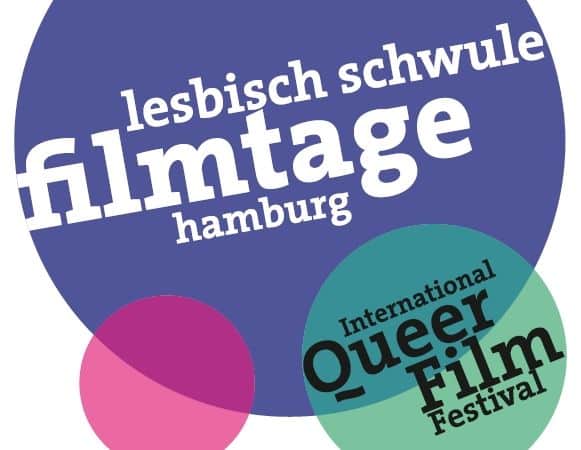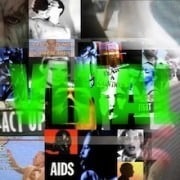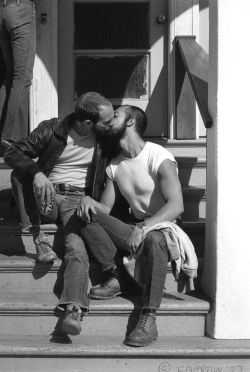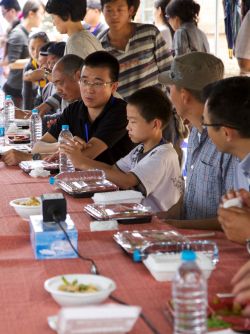The Lesbian and Gay Film Festival Hamburg starts today. One focus of the programme is on 30 years of HIV and Aids.
In 1981, a mysterious disease suddenly appeared in New York, and only a short time later it had spread like wildfire in San Francisco.
The gay community reacted with horror and fear, but also very pragmatically and in solidarity. Because many hospital staff refused to care for AIDS patients for fear of infection, not only was nursing care organised, but the principle of "meals on wheels" was also launched. Volunteers, known as buddies, cared for those affected at home and supported the sick.
How the gay community of San Francisco organised itself politically and socially during this first phase of the pandemic and developed new forms of solidarity is impressively demonstrated by two films at the Lesbian and Gay Film Festival Hamburg, which begins today: "Buddies" and "We Were Here" are part of the programme focus "30 Years of HIV and Aids".
The low-budget production "Buddies"made in 1985, is considered the first ever feature film on the subject of AIDS. Arthur J. Bressan used the example of Robert and his buddy David, who had AIDS, to condense the enormous struggles and upheavals that the gay community had to cope with into an intimate drama.
25 years later, David Weissman has impressively captured this first phase of the pandemic in documentary images and interviews with contemporary witnesses. In "We Were Here", the US director recapitulates the development of the "gayest city in the world" from the 1970s to the late 1990s. By then, the city had suffered almost 16,000 Aids deaths.
Mark Strombach's interview film "My positive life"in which seven long-term positive people talk about their lives with HIV, their wishes and dreams, sexuality, relationships and loss, will have its world premiere in Hamburg and will also be shown in Berlin and elsewhere on 1 December.
Alexander Huber's festival contribution "The Bareback Issue" is limited almost exclusively to interviews. In contrast to the protagonists in "My Positive Life", however, his interviewees remain anonymous almost throughout. With the exception of a porn actor, doctors and AIDS activists, nobody wants to talk openly about bareback sex (bareback actually means "riding without a saddle", a term that is often used synonymously with "sex without a condom" today).
The discussions, held in London and Berlin in English, touch on all the obvious aspects of this much-discussed and controversial topic: whether the consumption of drugs and alcohol promotes risky sex, whether bareback porn influences sexual behaviour, whether sex addiction and excessive promiscuity inevitably lead to bareback sex. The health risks are also addressed, in particular the problem of HIV/hepatitis C double infections. And then there is also the financial aspect of HIV infection, which may be taken lightly. According to two doctors, HIV therapy for a young infected man costs around 500,000 euros for the realistically estimated 30 to 40 additional years of his life.
Director Alexander Huber avoids taking a clear stance of his own on his subject matter - and in doing so differs significantly from Louise Hogarth's committed, much more elaborate and technically convincing bareback documentary "The Gift" (2003). Nevertheless, the half-hour film provides enough material for an initial examination of the topic of barebacking. Following the screening in Hamburg on 22 October, the director, a bareback porn director and representatives of the Hamburg prevention project Hein & Fiete will be among those taking part in the discussion.
With "Together" the situation of people with HIV and Aids in a country outside the Western world will be highlighted as part of the festival series. Zhao Liang documented the shooting of a feature film by his friend, director Gu Changwei, who deliberately wanted to use HIV-positive amateur actors in his AIDS parable "Life is a Miracle". "Together" not only shows the difficulties of casting, but also tells of the discrimination, marginalisation and shame of those affected - and the reactions of the non-infected actors to their HIV-positive colleagues on set.
Last but not least, Evan Romero and Nicolas Feustel examine the first 30 years of the social debate on HIV and AIDS by linking it to another anniversary, namely 30 years of MTV. For their video programme "Viral: HIV/Aids in music videos" the two have compiled examples of video clips from three decades in which pop musicians and video artists have dealt with the disease in a wide variety of ways.
Axel Schock
Further information:
Homepage of the Lesbian-gay film festival
Trailer for "My positive life" and Facebook profile to the film
Trailer for "The Bareback Issue"













